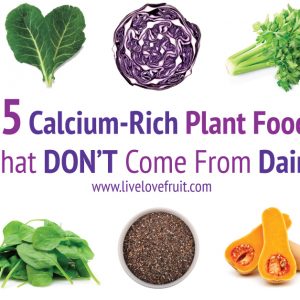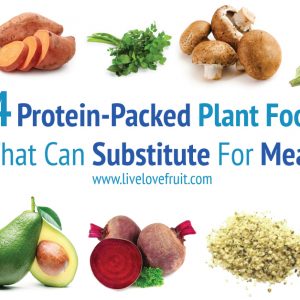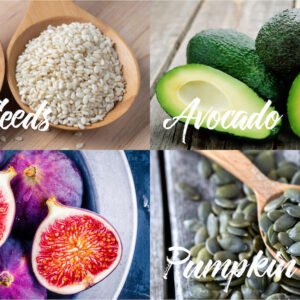We’ve been fed the same calcium myth since we were little kids. According to every advertisement and school board, milk is the “best” way to get your daily fill of calcium. But is it really?
While you might already know that all the “Got Milk?” campaigns are directly sponsored by the dairy industry, most people still believe the misinformation they are fed, day in, day out.
The dairy industry has us convinced that dairy equals calcium, which equals strong, healthy bones. And if you don’t drink dairy, you’re not going to have strong bones. Fortunately for us, they couldn’t be more wrong.
Calcium In Milk
Many scientific studies have shown an assortment of detrimental health effects directly linked to milk consumption. Not only do we barely absorb the calcium in cow’s milk (especially when pasteurized), but it actually makes calcium loss from the bones even worse (1).
Wait a minute. Hasn’t the dairy industry been telling us this whole time that the calcium found in cow’s milk makes our bones stronger? Maybe they didn’t take into account the high concentration of animal protein found in cow’s milk. That’s the real issue here.
You see, like all animal protein, milk acidifies the pH of our body, which in turn triggers a biological “correction” so to say. This process essentially tries to neutralize the highly acidic pH by taking highly alkaline minerals found elsewhere in the body. Guess which mineral is highly alkaline? Calcium. And where is the highest concentration of calcium found? You got it. The bones.
So when we drink a glass of milk, instead of building strong bones, the highly acidic liquid instead gets buffered by the calcium from our bones, which means less calcium for strong bones, and more calcium for neutralizing an acidic environment in the body.
Once this calcium is pulled from the bones, it leaves the body via urine, so the end result is an actual calcium deficit.
It isn’t surprising, then, why counties with the lowest consumption of dairy products also have the lowest fracture incidence in their population (2).
How Much Calcium Do We Need?
It is currently recommended that adults consume 1,000 to 1,200 milligrams of calcium a day, but a lot of plant-based nutritions, according to Bustle, insist that these recommendations are only this high because a majority of society relies on animal protein for calcium (which results in high calcium excretion rates).
If you consume a lot of animal products, you’ll likely need more calcium, but if you’re plant-based, you’ll probably need less. According to a study by the American Journal of Clinical Nutrition, you only need between 500 and 741 mg of calcium per day if you’re eating the right plant-based foods that actually allow your body to absorb more calcium (3).
Best Plant-Based Calcium Sources
Moving on to the main point of this article – which plant foods contain high-quality, easily-absorbable calcium? Well, quite a few actually (much more than 20, but to narrow it down to the highest sources, I’ll leave it at that). Also keep in mind that eating plant-based sources of calcium will also provide your body with much-needed minerals, vitamins and crucial phytonutrients to keep your body healthy and strong.
Some of the best plant-based calcium sources around are those found in leafy greens. Spinach, kale, collards, broccoli, turnip greens, you name it. Just one serving of kale provides over 150 mg of calcium, whereas one serving of low-fat cow’s milk gives you 125 mg.
According to Julieanna Hever, a plant-based dietitian, author and health and fitness expert, “calcium in kale is 30 percent more absorbable than calcium sourced from dairy products.” Which is why it is important to remember that while dairy may, in some cases, have more calcium per serving than a vegetable, your body isn’t going to absorb it as good as it would from a plant-based calcium source.
Beans are also another great source of plant-based calcium. Anything from lentils to navy beans, kidney beans, chickpeas, and black beans all have highly bioavailable sources of calcium. For example, just 1 cup of chickpeas contains over 210 mg of calcium.
Nuts and seeds are excellent sources of plant-based calcium, too. Just 1/4 cup of almonds will provide over 94 mg of calcium. If you make your own fresh almond milk, you’d be getting around 380 mg of calcium per cup. One tablespoon of sesame seeds contains 88 mg of calcium, and so including a little sprinkling on your salad, or opting for tahini-based sauces would be a great way to up your calcium levels.
And while fruit contains not as much calcium as vegetables, leafy greens, and nuts and seeds, figs are particularly high on the radar, with over 100 mg of calcium for just eight dried figs.
To make this a little easier for you, here is a list of 20 plant foods that are high in calcium:
1. Chia seeds (1 tablespoon: 90 mg)
2. Sesame seeds (1 tablespoon: 90 mg)
3. Almonds (1/4 cup: 94 mg)
4. Brazil nuts (1/4 cup: 55 mg)
5. Flaxseeds (1 tablespoon: 26 mg)
6. Black beans (1 cup: 294 mg)
7. Chickpeas (1 cup: 210 mg)
8. Navy beans (1 cup: 125 mg)
9. Kohlrabi (1 cup: 390 mg)
10. Collards (1 cup: 357 mg)
11. Spinach (1 cup: 250 mg)
12. Turnip greens (1 cup: 249 mg)
13. Kale (1 cup: 179 mg)
14. Broccoli (1 cup: 178 mg)
15. Bok choy (1 cup: 158 mg)
16. Okra (1 cup: 135 mg)
17. Butternut squash (1 cup: 84 mg)
18. Figs (per 8 figs: 100 mg)
19. Mulberries (1 cup: 55 mg)
20. Gooseberries (1 cup: 38 mg)
Keep in mind that not just calcium is required for healthy bones, but magnesium also plays a crucial role. By eating a wide range of plant-based foods, you’ll be certain to meet all your nutrient needs.









While I appreciate the information offered in the article, I find it disturbing that there’s an ad for tyson chicken at the bottom of the page.
Thanks for letting me know Rob. LLF is based around plant-based eating so it is useful to know when ads like that show up. I have requested from my advertiser to block those ads. Thanks!
Thanks so very much for this healthy information. I’m a vegetable eater but always wanted to know what foods other than milk that was a good calcium source. Fortunately, I eat those foods and will make sure my grandchildren who are asthmatic eat them too. Does almond milk cause they production of more mucus?
Hey Brenetta – almond milk should be okay, just make sure you find one with no extra added ingredients, as most almond milk is mostly filler (like guar gum or carrageenan). Making your own almond milk is best!
I am not a fan of alternative milk because I feel they are not really a food but manufactured. Almond milk is lucky if there is an almond in it. Soya beans are okay but it is doubtful to me that the milk is good for you. I feel they are the equivalent to junk food, and it worries me that celebrities promote them.
Making your own is definitely 100% preferable. Making your own oat and almond milk is super easy. Coconut milk straight from a can or package can sometimes be found without added fillers too!